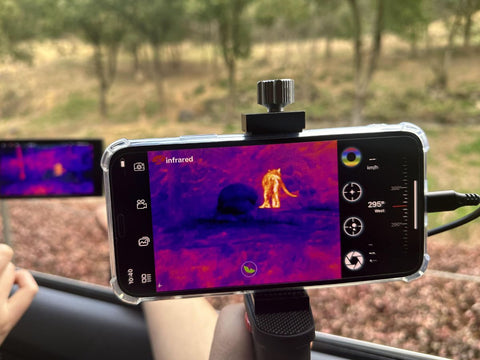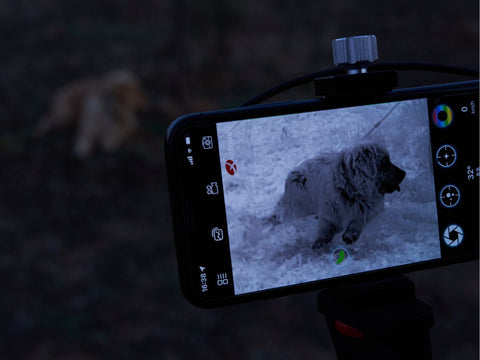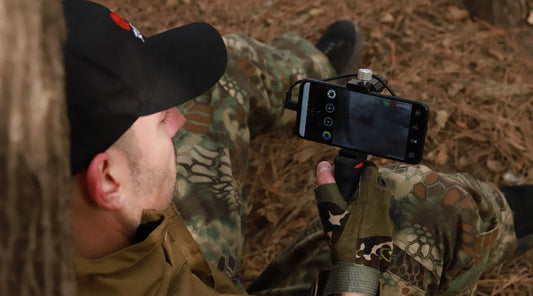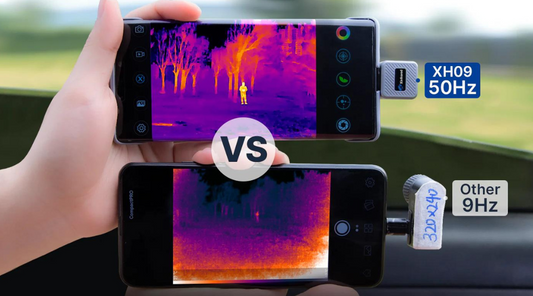Night Hunting Precision: 3 Vital Roles of Thermal Monoculars
In the world of hunting, mastering the art of precision is paramount, especially when the sun sets and darkness envelops the landscape. Night hunting requires a keen eye, acute senses, and the right tools. Among these tools, thermal monoculars stand out as indispensable companions for those seeking to enhance their precision under cover of darkness. In this article, we'll delve into the vital roles that thermal monoculars play in night hunting, shedding light on their significance and impact.
Understanding Thermal Monoculars
Before we explore their roles, let's take a moment to understand what thermal monoculars are and how they function. Thermal monoculars utilize cutting-edge thermal imaging technology to detect heat signatures emitted by objects in their surroundings. Unlike traditional night vision devices that rely on ambient light, thermal monoculars work effectively regardless of lighting conditions, making them ideal for nocturnal pursuits. With features like adjustable magnification, high-resolution displays, and ergonomic designs, thermal monoculars offer hunters a clear and precise view of their surroundings.

Role #1: Enhanced Visibility in Low-Light Conditions
The first vital role of thermal monoculars lies in their ability to provide enhanced visibility in low-light conditions. By capturing heat signatures emitted by animals, objects, and terrain features, thermal monoculars offer hunters a distinct advantage in the dark. Whether scanning dense forests, vast plains, or rugged terrain, thermal imaging technology cuts through the darkness, revealing hidden targets with remarkable clarity. With thermal monoculars in hand, hunters can navigate the night with confidence, knowing that their visibility is not hindered by the absence of natural light.

Role #2: Detection and Identification of Targets
Another crucial role of thermal monoculars is their capability to detect and identify targets with precision. In the darkness of night, discerning between friend and foe, prey and non-prey becomes challenging. Thermal monoculars overcome this obstacle by highlighting heat signatures, allowing hunters to differentiate between living beings and inanimate objects. Moreover, the high-resolution displays and advanced image processing algorithms enable hunters to identify species, assess size, and gauge distance accurately. With the aid of thermal monoculars, hunters can make informed decisions and ethically pursue their targets.

Role #3: Improved Safety and Efficiency
Beyond enhancing visibility and target acquisition, thermal monoculars contribute to improved safety and efficiency during night hunting expeditions. The ability to detect potential hazards such as obstacles, cliffs, or other hunters in the vicinity enhances overall safety, reducing the risk of accidents or mishaps. Furthermore, by facilitating faster target acquisition and identification, thermal monoculars streamline the hunting process, allowing hunters to optimize their time and resources. With improved safety measures and enhanced efficiency, hunters can focus on the thrill of the chase while minimizing risks and maximizing results.

In conclusion, thermal monoculars play three vital roles in night hunting: enhancing visibility in low-light conditions, facilitating the detection and identification of targets, and improving safety and efficiency. With their advanced thermal imaging technology and user-friendly features, thermal monoculars empower hunters to navigate the darkness with confidence and precision. As night hunting continues to evolve, these versatile tools remain essential companions for those who seek to master the art of precision under the cover of night.




